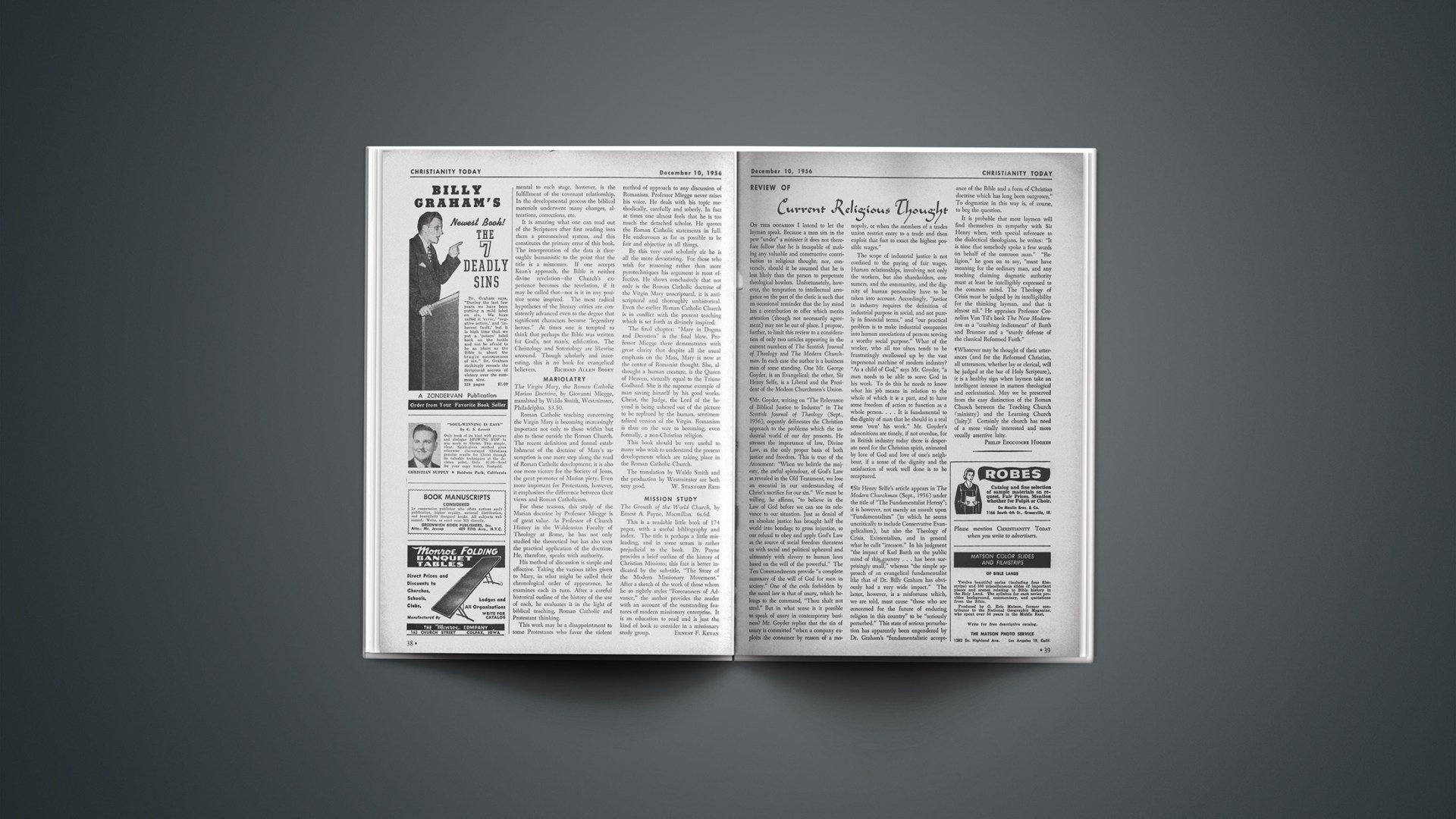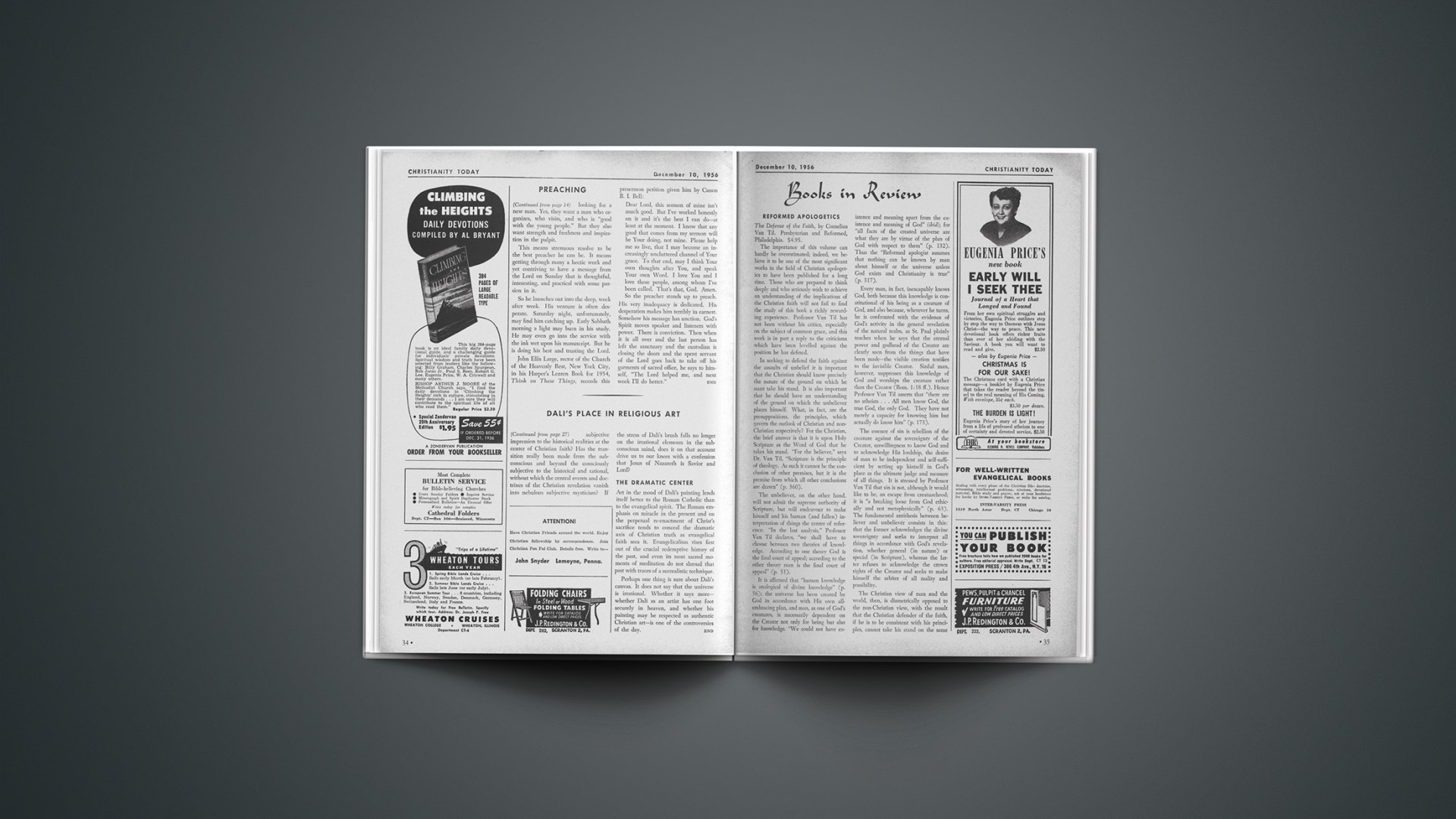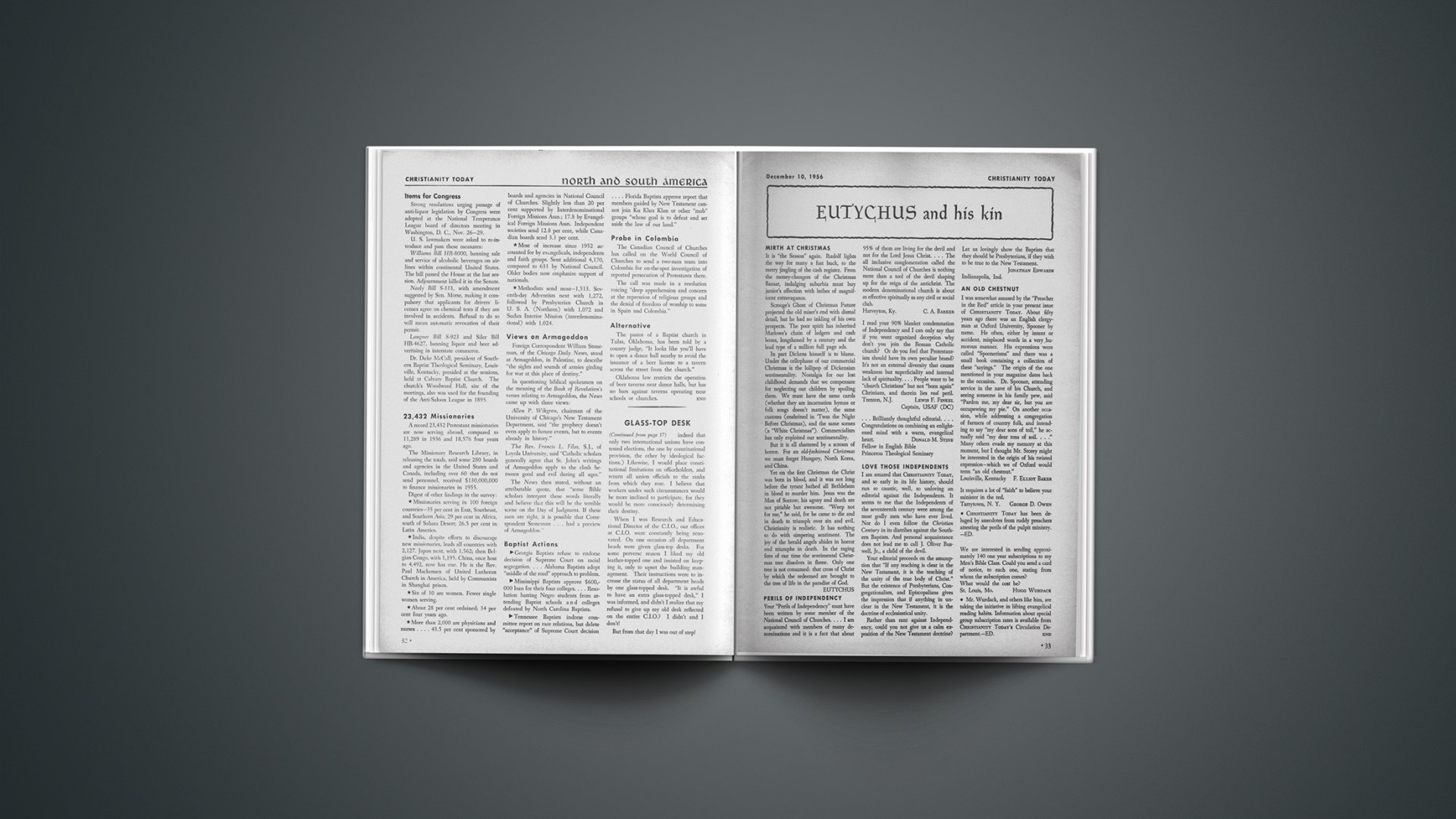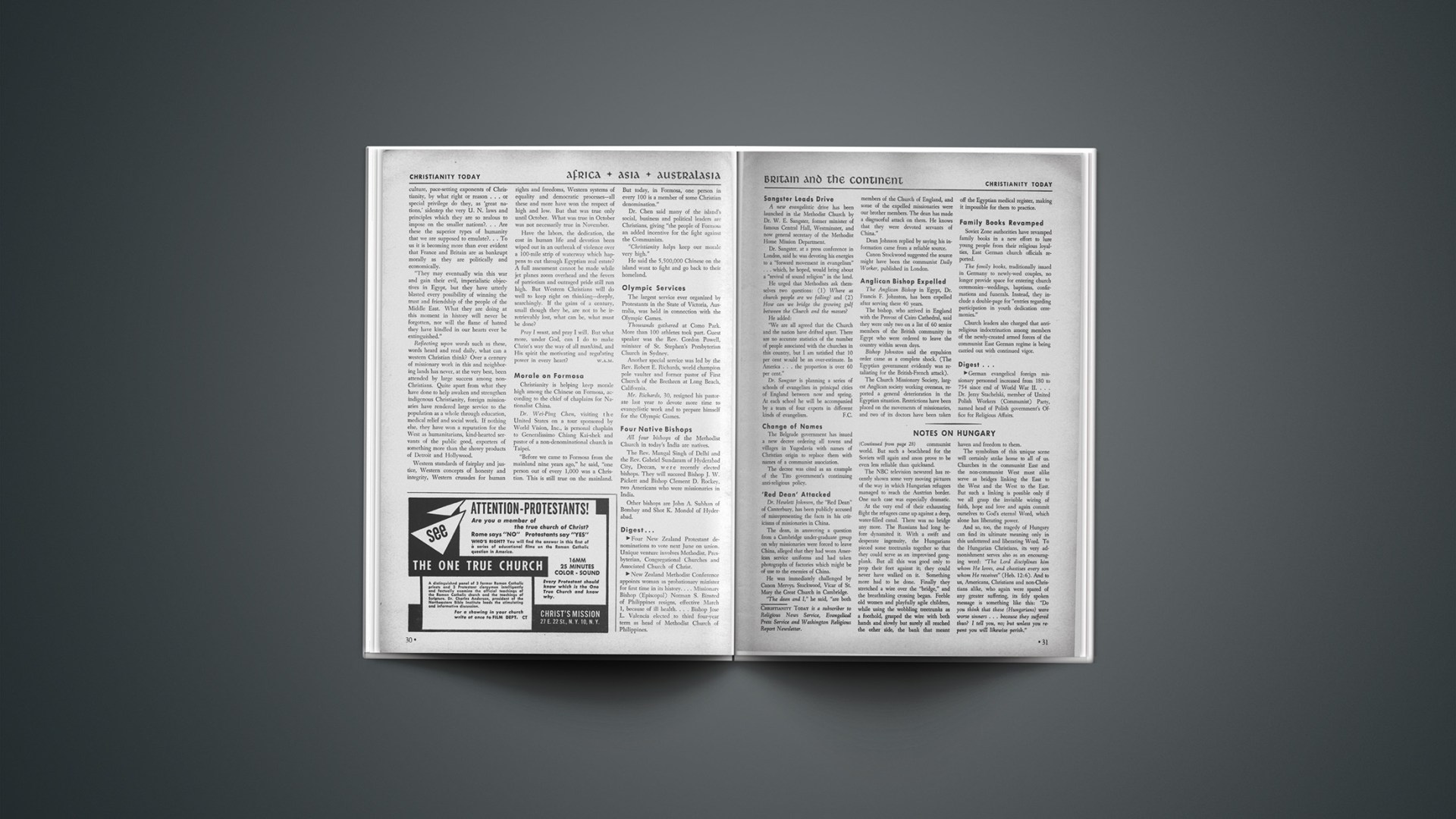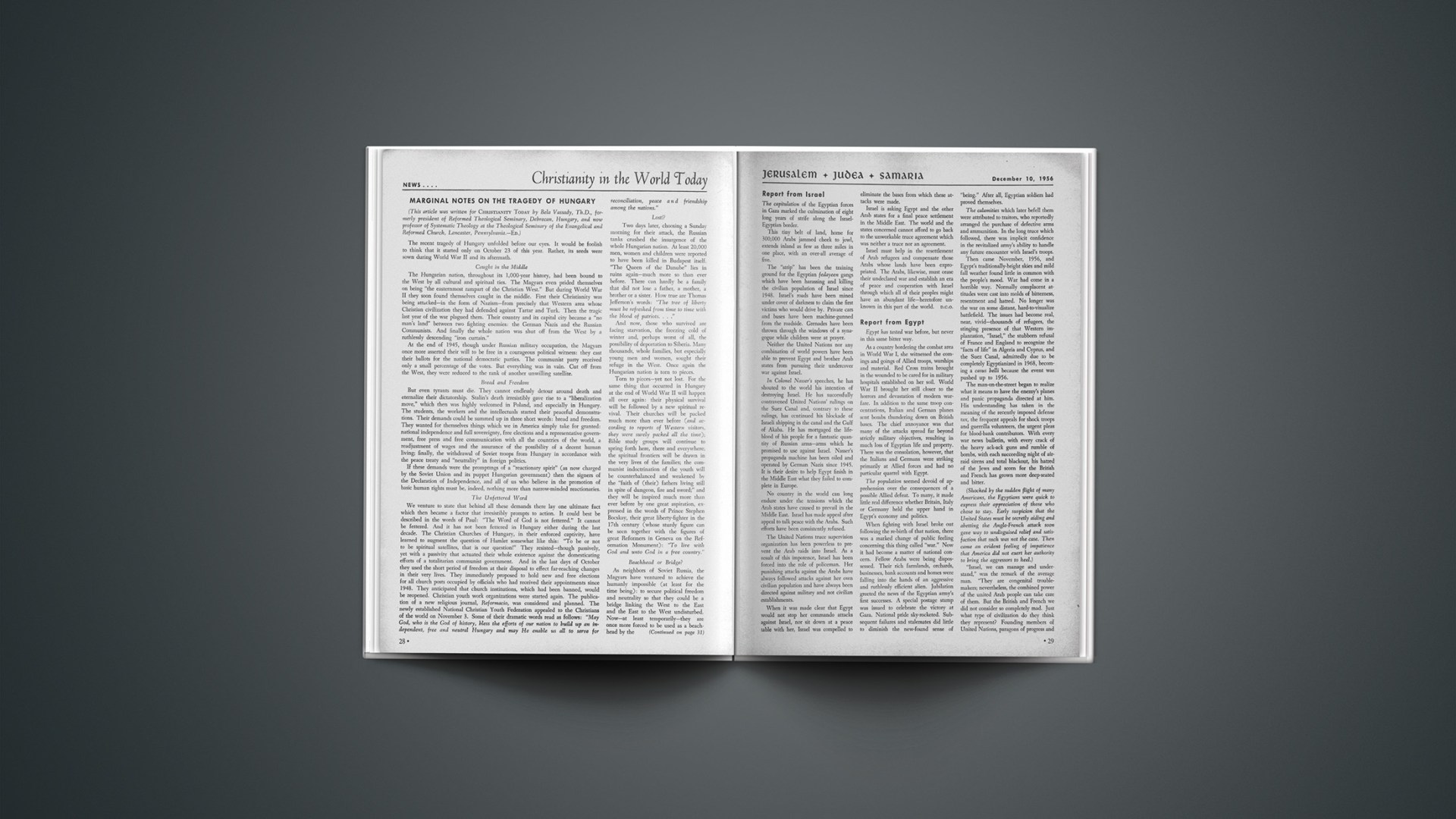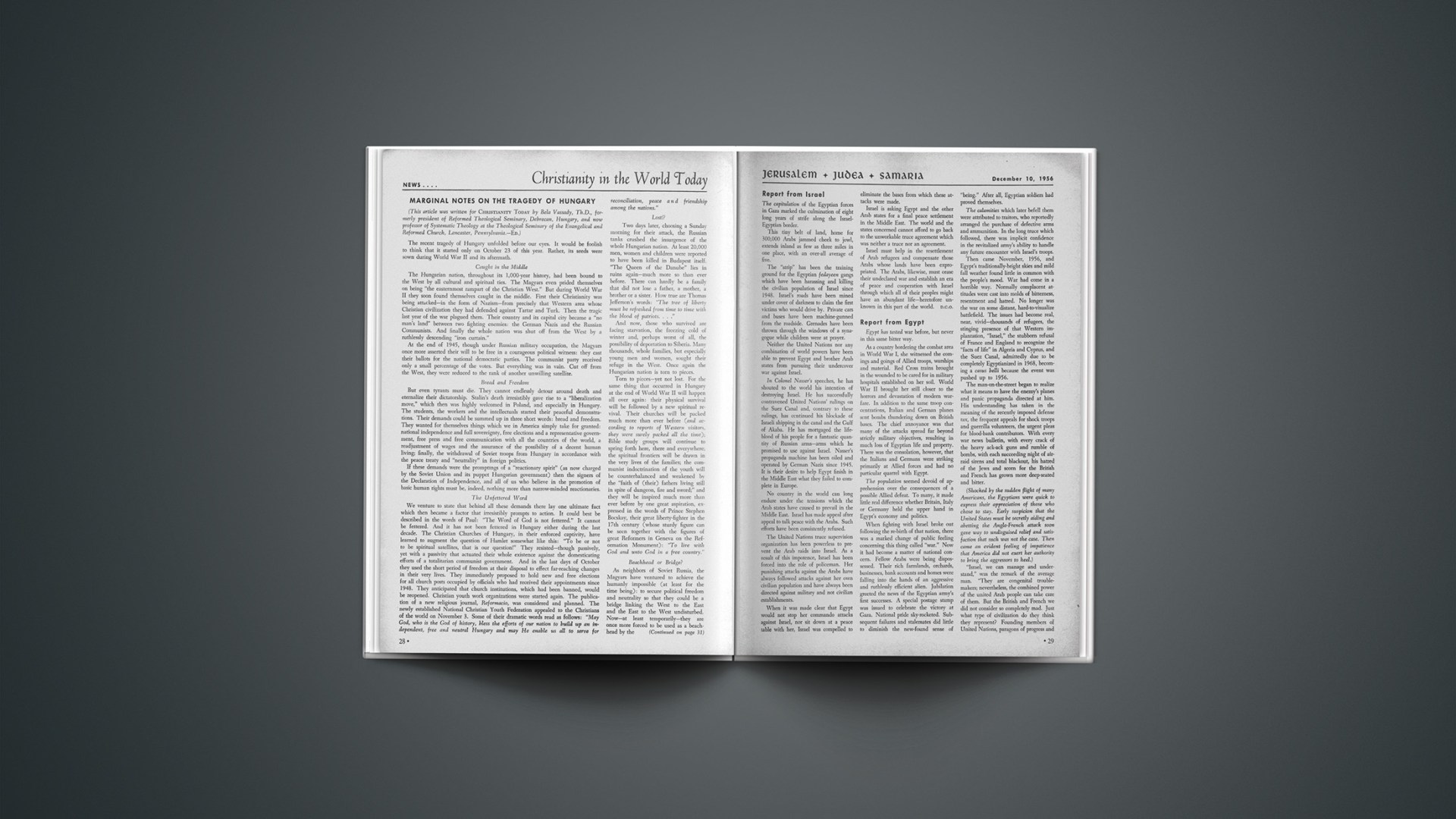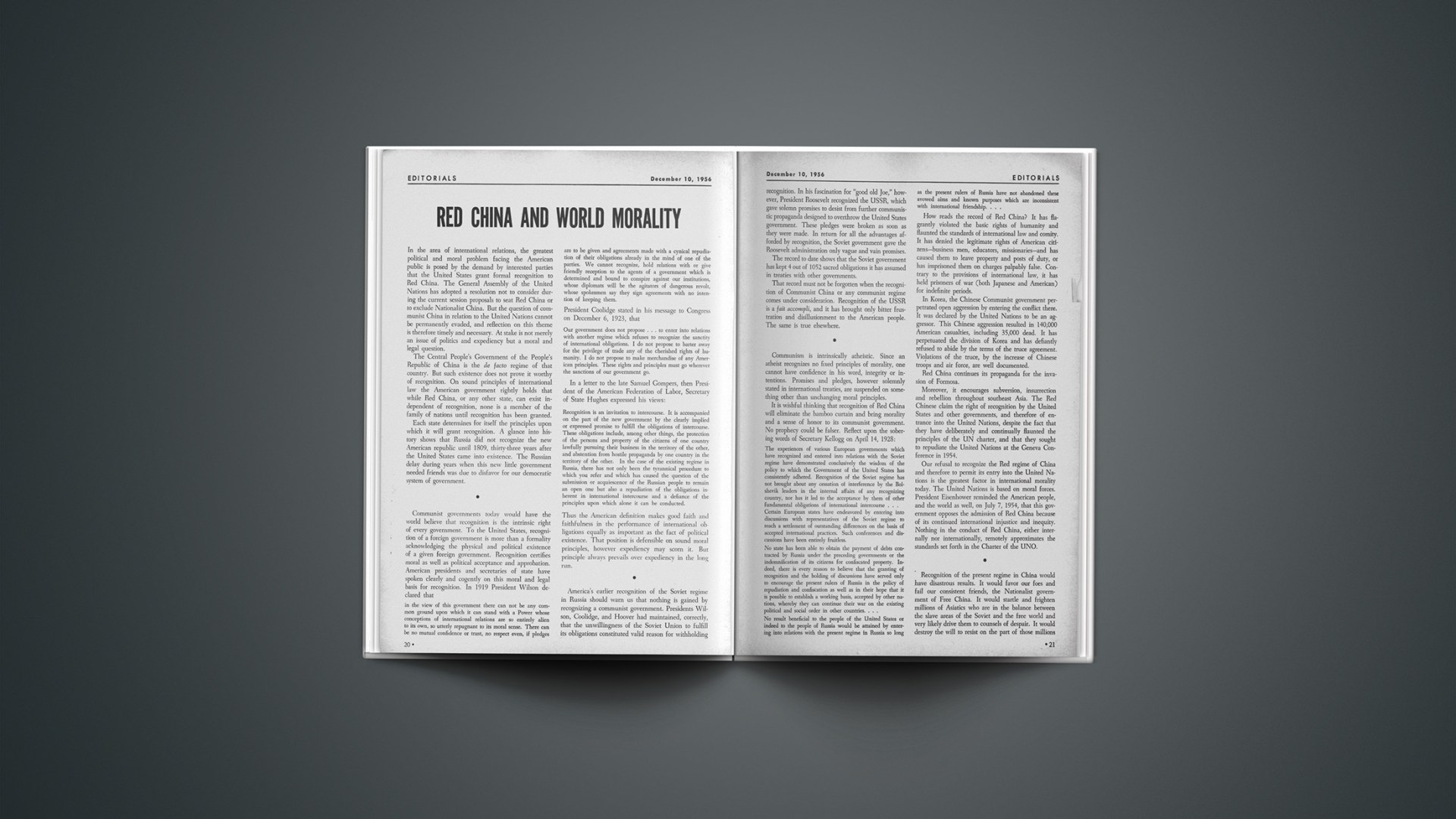On this occasion I intend to let the layman speak. Because a man sits in the pew “under” a minister it does not therefore follow that he is incapable of making any valuable and constructive contribution to religious thought; nor, conversely, should it be assumed that he is less likely than the parson to perpetrate theological howlers. Unfortunately, however, the temptation to intellectual arrogance on the part of the cleric is such that an occasional reminder that the lay mind has a contribution to offer which merits attention (though not necessarily agreement) may not be out of place. I propose, further, to limit this review to a consideration of only two articles appearing in the current numbers of The Scottish Journal of Theology and The Modern Churchman. In each case the author is a business man of some standing. One Mr. George Goyder, is an Evangelical; the other, Sir Henry Selfe, is a Liberal and the President of the Modern Churchmen’s Union.
¶ Mr. Goyder, writing on “The Relevance of Biblical Justice to Industry” in The Scottish Journal of Theology (Sept., 1956), cogently delineates the Christian approach to the problems which the industrial world of our day presents. He stresses the importance of law, Divine Law, as the only proper basis of both justice and freedom. This is true of the Atonement: “When we belittle the majesty, the awful splendour, of God’s Law as revealed in the Old Testament, we lose an essential in our understanding of Christ’s sacrifice for our sin.” We must be willing, he affirms, “to believe in the Law of God before we can see its relevance to our situation. Just as denial of an absolute justice has brought half the world into bondage to gross injustice, so our refusal to obey and apply God’s Law as the source of social freedom threatens us with social and political upheaval and ultimately with slavery to human laws based on the will of the powerful.” The Ten Commandments provide “a complete summary of the will of God for men in society.” One of the evils forbidden by the moral law is that of usury, which belongs to the command, “Thou shalt not steal.” But in what sense is it possible to speak of usury in contemporary business? Mr. Goyder replies that the sin of usury is committed “when a company exploits the consumer by reason of a monopoly, or when the members of a trades union restrict entry to a trade and then exploit that fact to exact the highest possible wages.”
The scope of industrial justice is not confined to the paying of fair wages. Human relationships, involving not only the workers, but also shareholders, consumers, and the community, and the dignity of human personality have to be taken into account. Accordingly, “justice in industry requires the definition of industrial purpose in social, and not purely in financial terms,” and “our practical problem is to make industrial companies into human associations of persons serving a worthy social purpose.” What of the worker, who all too often tends to be frustratingly swallowed up by the vast impersonal machine of modern industry? “As a child of God,” says Mr. Goyder, “a man needs to be able to serve God in his work. To do this he needs to know what his job means in relation to the whole of which it is a part, and to have some freedom of action to function as a whole person.… It is fundamental to the dignity of man that he should in a real sense ‘own’ his work.” Mr. Goyder’s admonitions are timely, if not overdue, for in British industry today there is desperate need for the Christian spirit, animated by love of God and love of one’s neighbour, if a sense of the dignity and the satisfaction of work well done is to be recaptured.
¶ Sir Henry Selfe’s article appears in The Modern Churchman (Sept., 1956) under the tide of “The Fundamentalist Heresy”; it is however, not merely an assault upon “Fundamentalism” (in which he seems uncritically to include Conservative Evangelicalism), but also the Theology of Crisis, Existenialism, and in general what he calls “irreason.” In his judgment “the impact of Karl Barth on the public mind of this country … has been surprisingly small,” whereas “the simple approach of an evangelical fundamentalist like that of Dr. Billy Graham has obviously had a very wide impact.” The latter, however, is a misfortune which, we are told, must cause “those who are concerned for the future of enduring religion in this country” to be “seriously perturbed.” This state of serious perturbation has apparently been engendered by Dr. Graham’s “fundamentalistic acceptance of the Bible and a form of Christian doctrine which has long been outgrown.” To dogmatize in this way is, of course, to beg the question.
It is probable that most laymen will find themselves in sympathy with Sir Henry when, with special reference to the dialectical theologians, he writes: “It is time that somebody spoke a few words on behalf of the common man.” “Religion,” he goes on to say, “must have meaning for the ordinary man, and any teaching claiming dogmatic authority must at least be intelligibly expressed to the common mind. The Theology of Crisis must be judged by its intelligibility for the thinking layman, and that is almost nil.” He appraises Professor Cornelius Van Til’s book The New Modernism as a “crushing indictment” of Barth and Brunner and a “sturdy defense of the classical Reformed Faith.”
¶ Whatever may be thought of their utterances (and for the Reformed Christian, all utterances, whether lay or clerical, will be judged at the bar of Holy Scripture), it is a healthy sign when laymen take an intelligent interest in matters theological and ecclesiastical. May we be preserved from the easy distinction of the Roman Church between the Teaching Church (ministry) and the Learning Church (laity)! Certainly the church has need of a more vitally interested and more vocally assertive laity.

